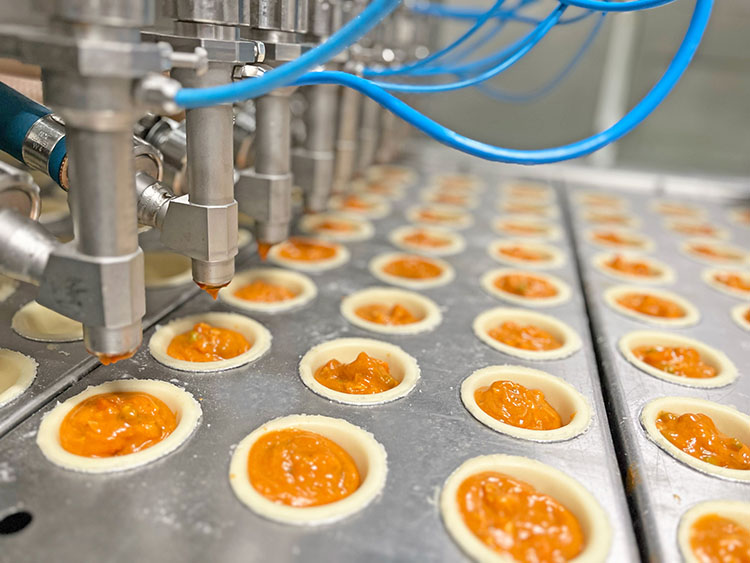
Every season sparks pie joy
Whether the pies have an open top – covered with various ingredients, or are closed with dough, lattice, or crumble, the technology needs to produce excellent results no matter the recipe and material changes.
Whether the pies have an open top – covered with various ingredients, or are closed with dough, lattice, or crumble, the technology needs to produce excellent results no matter the recipe and material changes.
Ever the safe-choice favorite, but never a boring idea: pizza enjoys great diversity, to match all tastes, eating occasions, and
Automated production lines are the solution to optimizing production and optimally allocating resources, including a critical one: the people on the production floor. Designing the turnkey line that fits best with a given environment throughout each process step also starts with people: the design team tasked with bringing together only the perfect pieces of the puzzle that will become a new line.
The Rademaker Pie and Quiche line is developed to produce an extensive assortment of pies and quiches from all cultures, ranging from meat pies, fruit pies, egg tarts (such as the beloved Pasta del Nata) and cheesecakes, to Melton pies, pork pies and even quiches; pies with an open top or closed with a dough lid, or crumbled top.
Rademaker designed its bread line for production efficiency, for a diverse range of breads including small baguettes, baguettes, triangle buns, square buns, hexagonal shaped buns, decorated/stamped buns, ciabatta, focaccia, pave, bagels and for a large variation of rounded products.
At home or at the restaurant, for lunch, office parties, or even for breakfast, ordered in person or online, the interest in pizza choices never fades. On the contrary, new, exciting taste offerings, product claims and ingredient combinations are welcomed opportunities to experiment.
Technology is optimized to meet the clear trend for flexible equipment that can support changes in production and a diverse range of breads, respectively. New developments also aim at bridging the gap between artisan and industrial production, in terms of product quality and production volumes.
Trade visitors welcome iba’s comeback. This October, 1,073 exhibitors from 46 countries showcased their latest developments in 10 halls, for 57,000 visitors from 150 countries attending the show. The fair in Munich saw full aisles for an anticipated industry reunion. By comparison, more than 77,000 trade visitors from around 170 countries came to iba in 2018. In total, over 1,300 companies exhibited 5 years ago.
Robotics, artificial intelligence (AI) and automated order and payment processes will be showcased at iba, part of the show’s digitalization focus. Visitors will be able to discover new opportunities in the iba.DIGITALISATION AREA, supported by AHA 360° and Shop-IQ.
iba 2023 will introduce a new hall structure. The organizers announced the halls will be grouped by topic this year: packaging technology in hall B1, and production technology and equipment in halls A1, A2, B2, B3, C1 and C2.
The beginnings of pinsa making go all the way back to the Roman Empire. A fresh new take on the Roman pinsa is now rising to the top among consumer favorites.
Tyrolean family business MPREIS is taking technology innovation personally. Its bakery in Innsbruck, Therese Mölk, is a state-of-the-art facility that continuously adds the latest improvements to optimize efficiency in production.

